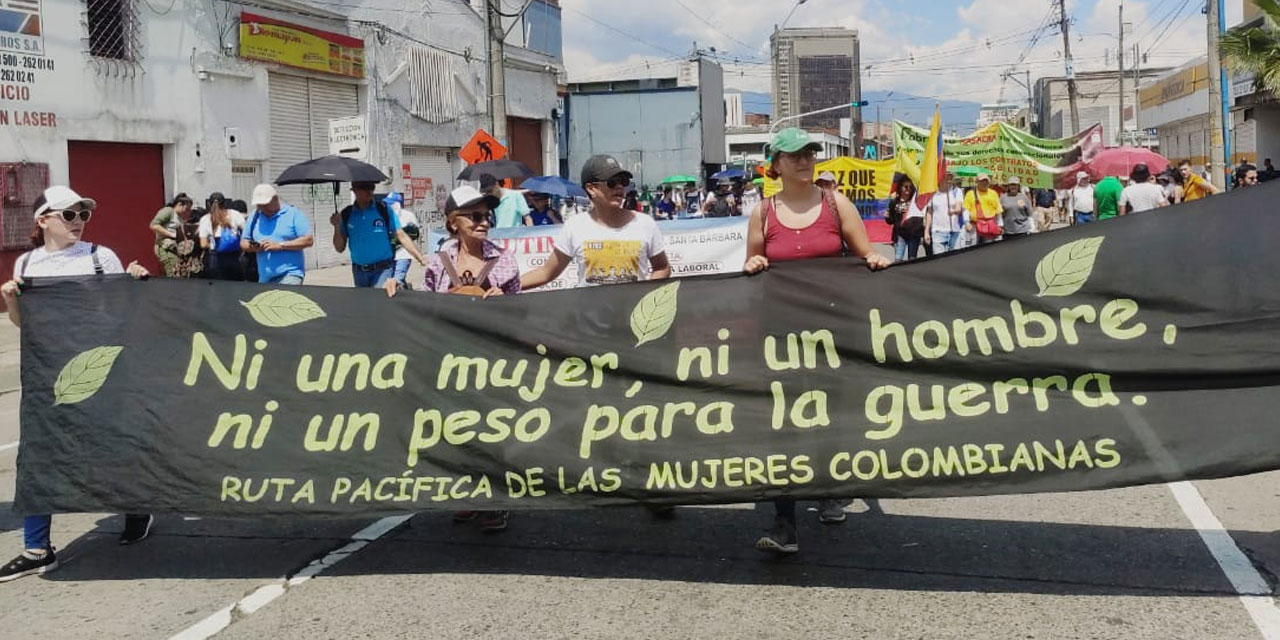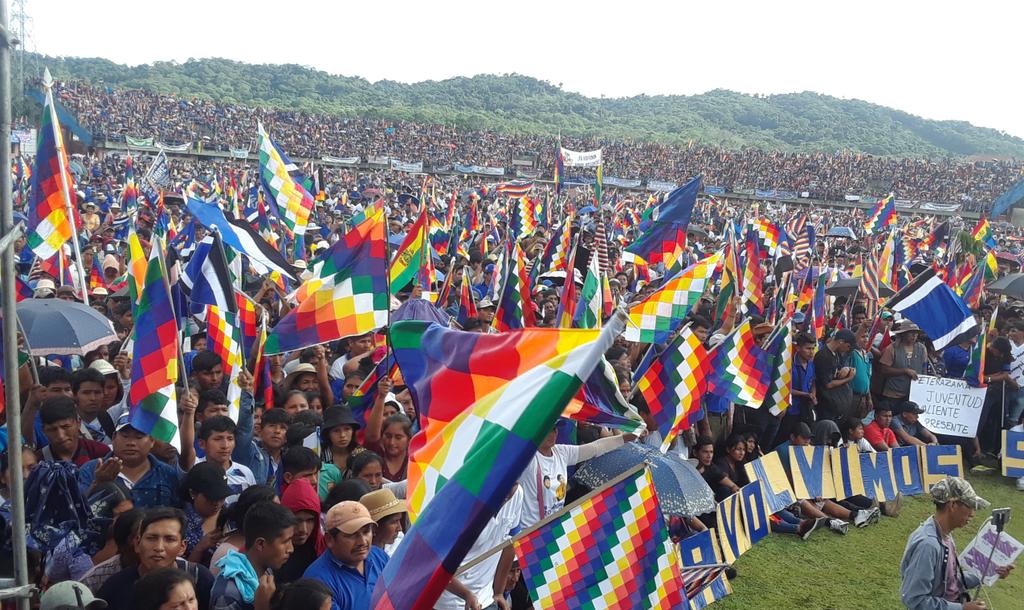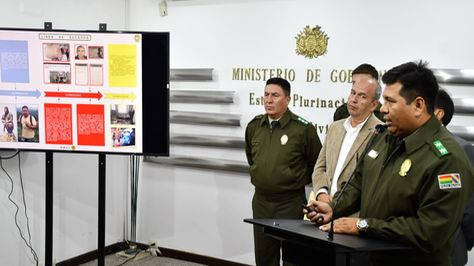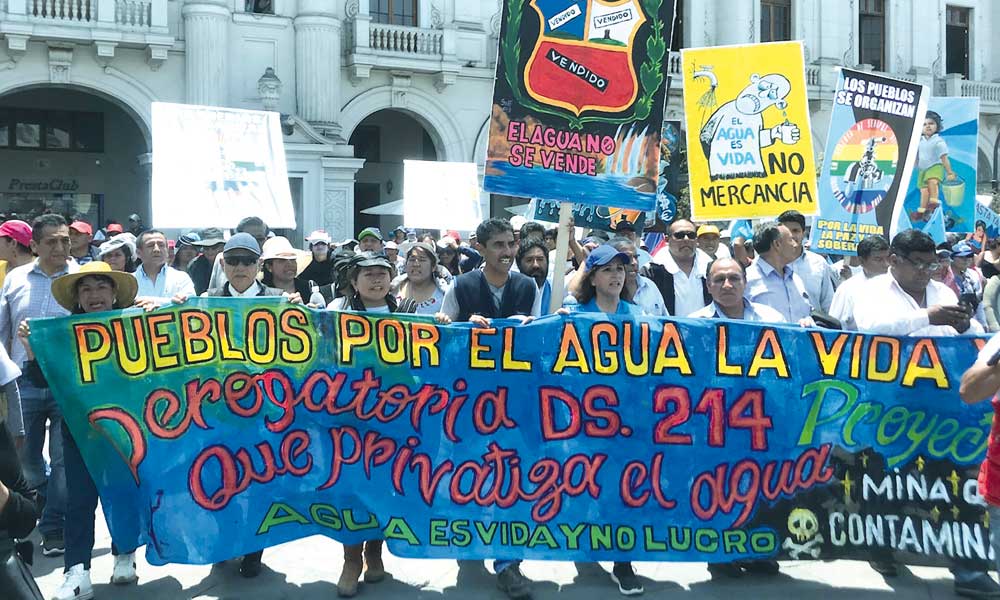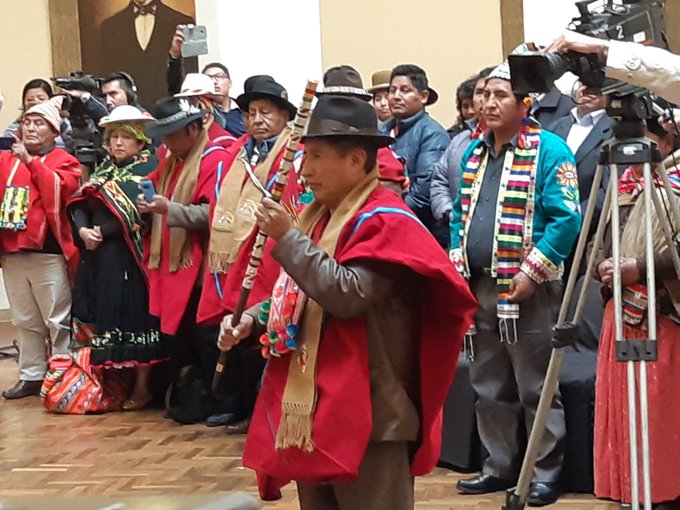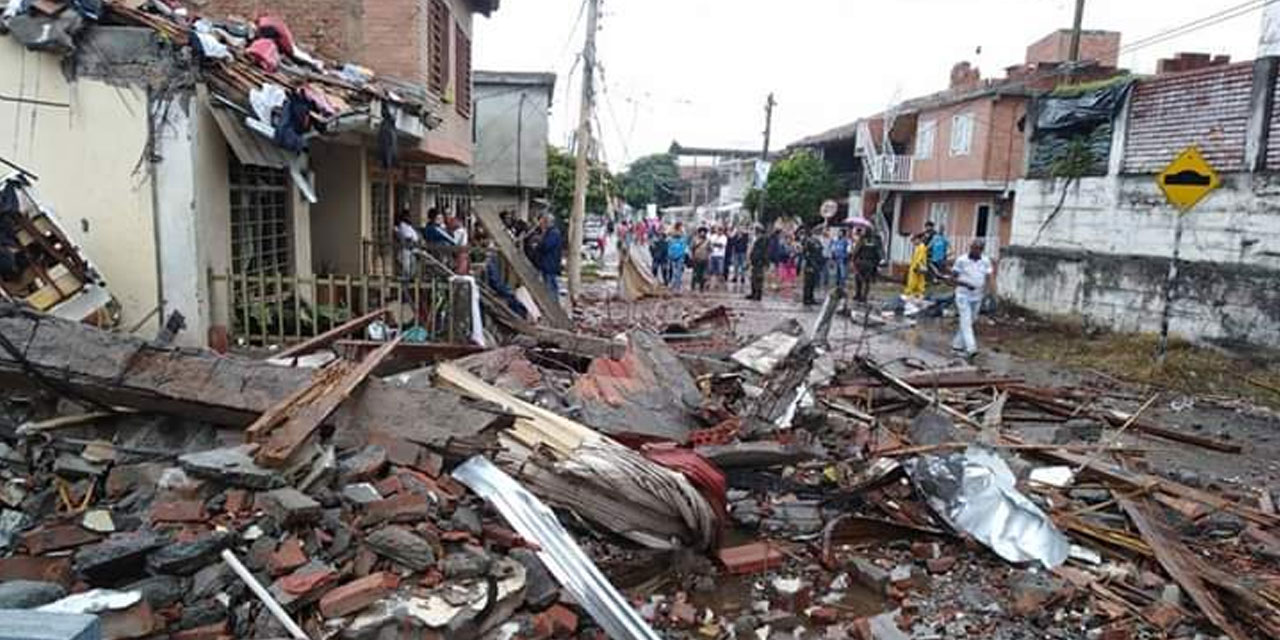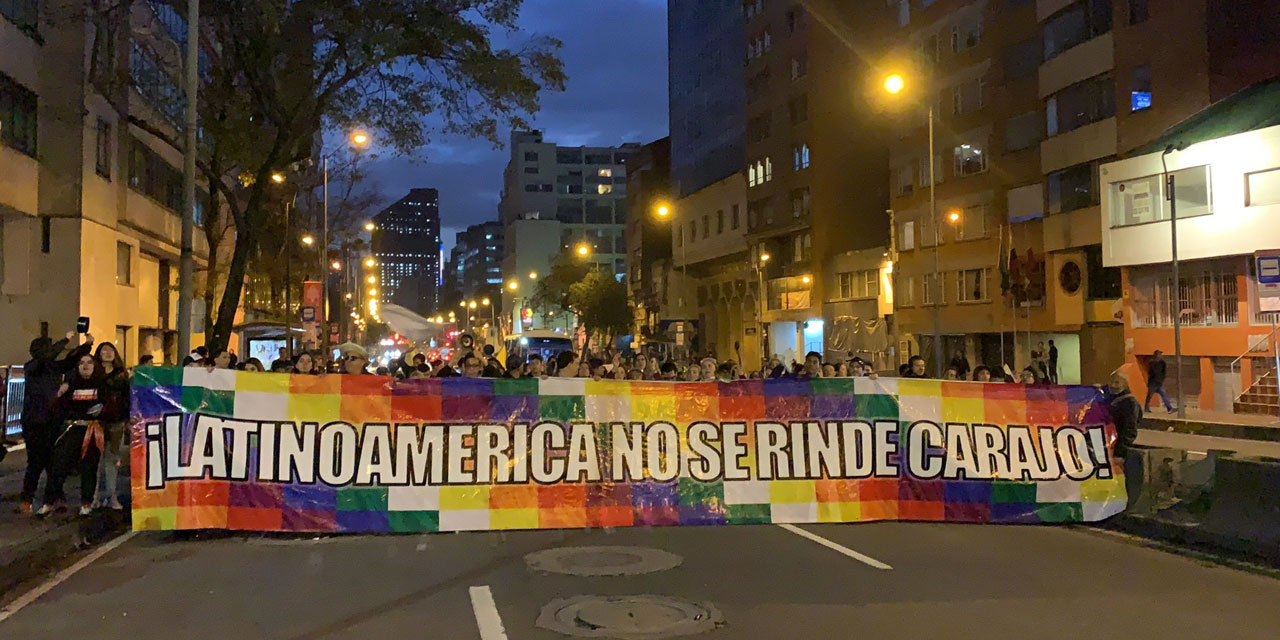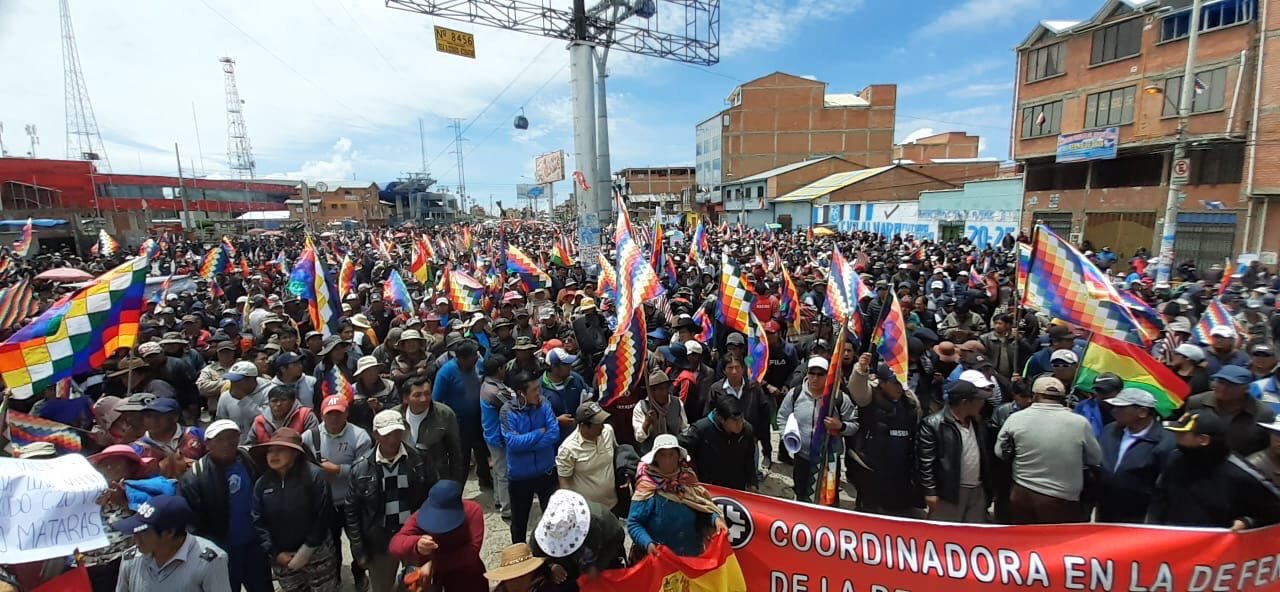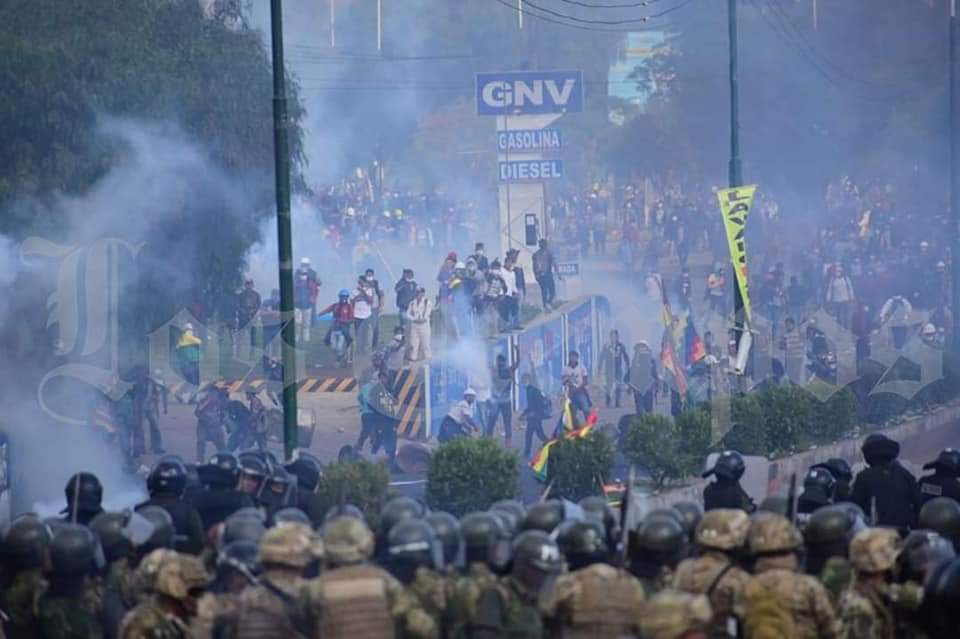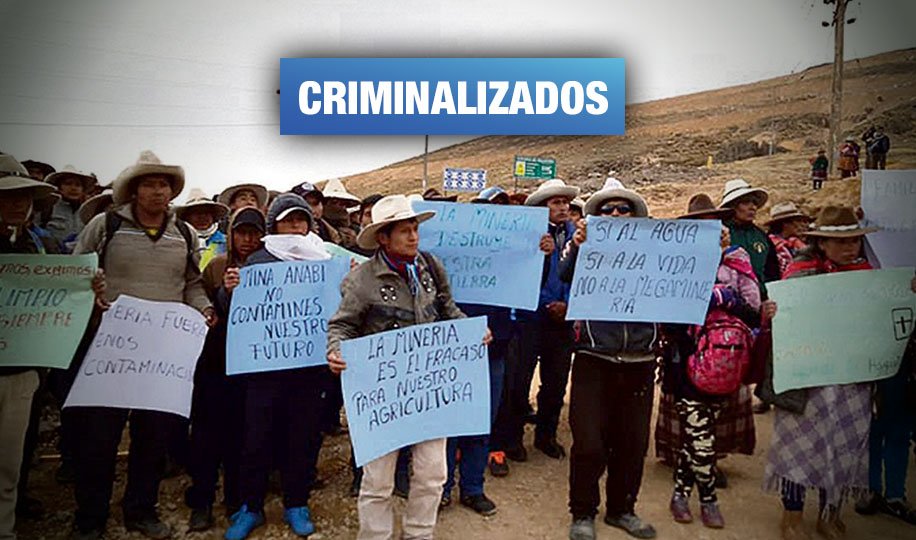
Peru: campesino ecological defenders acquitted
Following a trial lasting years, a criminal court in Peru’s Cuzco region finally absolved 10 campesinos from Chumbivilcas province of charges related to a 2011 protest against the ANABI mineral project, which they say threatens the headwaters of the Rio Yahuarmayo. The defendants—nine men and one woman—are followers of the Tupac Amaru Agrarian Federation of Cuzco (FARTAC). They had been charged with “disturbance,” “deprivation of liberty,” “aggravated property damage,” and other offenses typically used against protesters in Peru. If convicted, they could have faced up to 30 years in prison. The ANABI gold and copper mine is in neighboring Apurímac region, but the minerals are transported through Chumbivilcas on unimproved roads, raising dust that contaminates local lands and waters. (Photo: Wayka)



